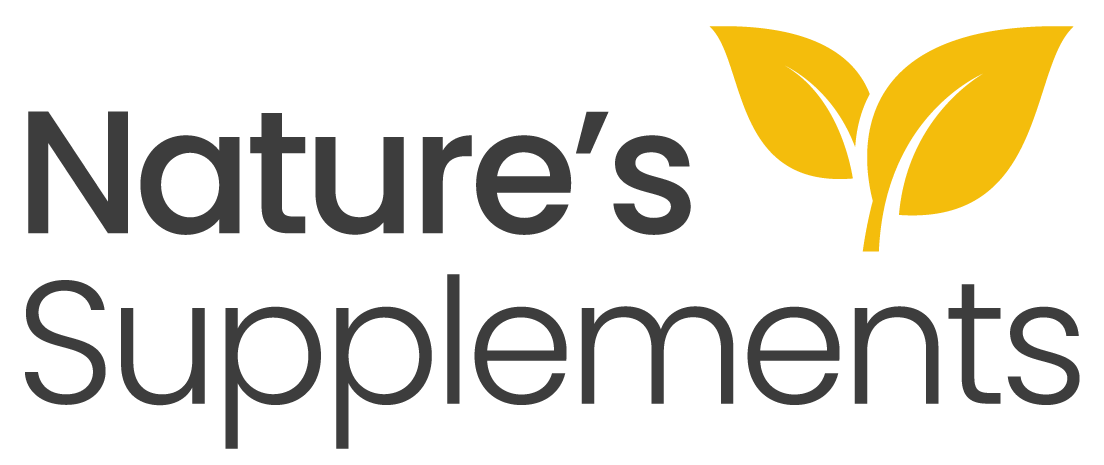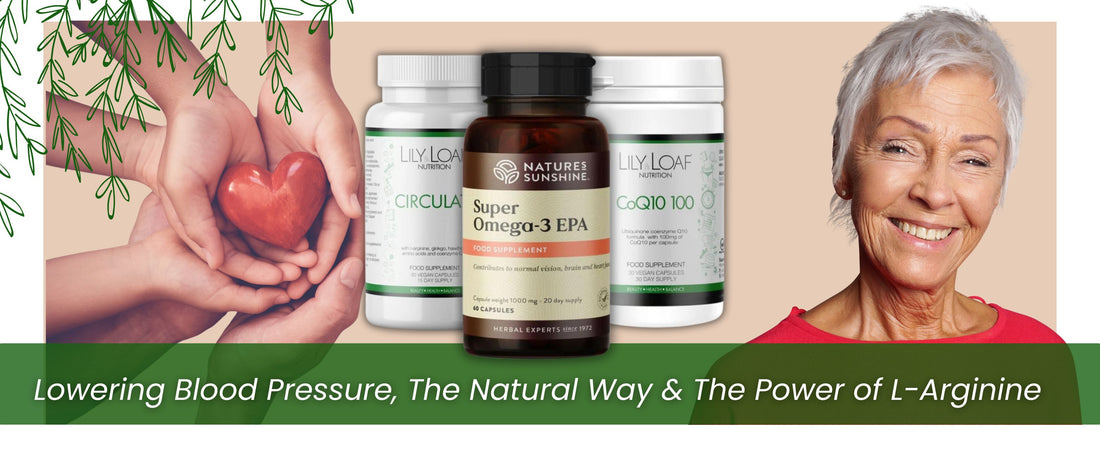In the UK, high blood pressure affects a significant portion of the population and according to the NHS, around 1 in every 4 adults in the UK has high blood pressure. This means millions of individuals are impacted by this condition, highlighting the importance of awareness, prevention, and management strategies.
Join us as we explore the vital role of blood pressure and discover natural ways to restore your circulatory system to its vibrant, life-sustaining rhythm.
Blood Pressure Explained
Blood pressure is the force exerted by the blood against the walls of arteries as it circulates throughout the body. It's typically measured in millimeters of mercury (mm Hg) and expressed as two numbers: systolic pressure over diastolic pressure.
Blood pressure is essential for maintaining proper circulation and delivering oxygen and nutrients to tissues and organs throughout the body. Your blood pressure plays a vital role as it ensures that all major organs, cells, and muscles receive the essential oxygen and nutrients carried by your blood. A robust and steady heartbeat facilitates proper blood circulation throughout your body, ensuring the smooth functioning of all essential bodily processes. It's influenced by various factors, including the pumping action of the heart, the elasticity and diameter of blood vessels, blood volume, and the viscosity (thickness) of the blood.
High Blood Pressure (Hypertension)
Hypertension can strain the heart and blood vessels, leading to serious health problems such as heart disease, stroke, and kidney disease. If you encounter heart or circulatory issues, such as narrowed blood vessels or a weakened heartbeat, the efficient pumping of blood throughout your body becomes challenging. This impediment over time can result in cellular and organ damage due to inadequate oxygen, nutrition, and fuel delivery.
Regular monitoring of blood pressure, along with lifestyle modifications such as a healthy diet, regular exercise, stress management, and medication when necessary, plays a crucial role in maintaining cardiovascular health and reducing the risk of associated complications.
Signs of Hypertension
Detecting high blood pressure often requires measurement with a blood pressure monitor. However, there are some signs and symptoms that may indicate high blood pressure or risk factors associated with it. Here are some indicators:
Headaches: Persistent headaches, particularly at the back of the head, could be a symptom of high blood pressure.
Vision Problems: Blurred or double vision can sometimes occur with high blood pressure, indicating potential damage to the eyes.
Chest Pain: Chest pain, especially during physical activity or exertion, may indicate high blood pressure or related heart issues.
Shortness of Breath: Difficulty breathing or shortness of breath, especially during physical activity, can be a sign of high blood pressure affecting the heart or lungs.
Dizziness or Lightheadedness: Feeling dizzy or lightheaded, particularly when standing up quickly, may occur due to changes in blood pressure.
Irregular Heartbeat: Palpitations or a sensation of irregular heartbeat can sometimes be associated with high blood pressure.
Frequent Nosebleeds: While not always a direct symptom, frequent nosebleeds can sometimes be associated with high blood pressure.
Fatigue: Persistent fatigue or weakness, especially if not relieved by rest, can be a sign of high blood pressure affecting overall circulation and energy levels.
Swelling: Swelling in the legs, ankles, or feet may indicate high blood pressure-related issues with circulation or heart function.
It's essential to remember that high blood pressure often doesn't present noticeable symptoms, which is why regular blood pressure monitoring is crucial, especially if you have risk factors such as obesity, a sedentary lifestyle, unhealthy diet, smoking, regular alcohol consumption or a family history of hypertension. If you experience any of these symptoms or have concerns about your blood pressure, it's best to consult with a healthcare professional for proper evaluation and guidance.
Lead a Healthy Lifestyle
Maintaining a healthy diet and stay physically active are pivotal in enhancing heart and circulatory health. Conversely, reducing consumption of unhealthy foods, quitting smoking, and moderating alcohol intake contribute significantly to maintaining optimal blood pressure levels. Here are some natural methods to lower blood pressure:
Cutting back on processed foods reduces intake of salt, sugar, and refined carbohydrates, contributing to lower blood pressure. Reading nutrition labels while shopping helps make informed choices and reduces salt consumption.
Losing excess weight not only lowers blood pressure but also decreases the risk of other medical conditions.
Regular physical activity, whether it's hitting the gym or walking 10,000 steps daily, boosts heart rate and strengthens the heart over time, reducing the workload required for blood circulation.
A diet rich in fruits, whole grains, vegetables, and good fats, help lower blood pressure. Keeping a food diary can identify areas for improvement and guide adjustments to reduce consumption of unhealthy foods.
Limit Alcohol. Excessive alcohol intake can raise blood pressure and pose long-term health risks. Drink in moderation to minimise its impact on blood pressure and overall health.
Quitting smoking improves overall health by reducing inflammation and narrowing of arteries caused by tobacco chemicals, thereby lowering blood pressure.
Mindfulness practices like yoga and meditation alleviate stress, leading to lower blood pressure. Incorporating a few minutes of yoga into your daily routine promotes relaxation and mental well-being.
Increasing potassium intake relaxes blood vessels, aiding in blood pressure regulation. Potassium-rich foods such as bananas, fish, and spinach can be beneficial, but consult with a doctor, especially if you have kidney disease, to avoid excessive potassium intake.
The Power of L-Arginine
L-arginine is an amino acid that plays a crucial role in various bodily functions, including the regulation of blood pressure. Below are some of the benefits of L-arginine for blood pressure.
Nitric Oxide Production. L-arginine serves as a precursor for the synthesis of nitric oxide (NO) in the body. Nitric oxide is a vasodilator, meaning it helps blood vessels relax and widen, which subsequently lowers blood pressure. This dilation allows for better blood flow and reduces the pressure exerted on arterial walls.
Improved Endothelial Function. The endothelium, the inner lining of blood vessels, plays a pivotal role in regulating vascular tone and blood pressure. L-arginine promotes endothelial health by supporting the production of nitric oxide, which helps maintain the flexibility and integrity of blood vessels.
Reduced Peripheral Resistance. By enhancing nitric oxide production and promoting vasodilation, L-arginine can help reduce peripheral resistance, which is the resistance encountered by blood flow in the smaller arteries and arterioles. Lower resistance means the heart doesn't have to work as hard to pump blood, thereby reducing blood pressure.
Antioxidant Properties. L-arginine exhibits antioxidant properties, which can help protect the endothelium from damage caused by oxidative stress. Oxidative stress is associated with inflammation and endothelial dysfunction, both of which can contribute to hypertension.
Support for Cardiovascular Health. Beyond its specific effects on blood pressure regulation, L-arginine offers broader cardiovascular benefits. It supports overall heart health by promoting healthy blood flow, enhancing vascular function, and reducing the risk of atherosclerosis, a condition characterised by the buildup of plaque in the arteries.
Lily & Loaf Circulate
Circulate formula includes l-arginine, ginkgo, hawthorn and CoQ10. l-arginine is an amino acid which the body converts into nitric oxide (NO). Nitric oxide is an important molecule associated with the health of blood vessels. It is known as a vasodilator which means it can help blood vessels to relax and widen, helping to increase blood flow and improve circulation. Wider blood vessels also help to improve the delivery of oxygen and nutrients to muscles during exercise.
Natural botanicals in this formula include Ginkgo biloba, a powerful antioxidant associated with heart health, and Hawthorn berries extract, which contains specific antioxidants that nourish the cardiovascular system.
Coenzyme Q10 (CoQ10) is an antioxidant that is naturally present in the body but production declines with age, even though it is required by virtually every cell in the human body to process energy. Cells use CoQ10 to perform a whole host of essential roles to maintain healthy bones, muscle, metabolism, and neurological function, with highest levels found in the muscles and the heart.
Nature’s Sunshine Super Omega 3 EPA
Super Omega-3 EPA from Nature's Sunshine offers pharmaceutical-grade fish oil sourced from cold-water fish. It provides numerous health benefits, including supporting heart function, normal blood pressure, and brain health. Omega-3s, EPA, and DHA are crucial for various bodily systems, from cardiovascular to nervous systems, and they aid in fetal development. This supplement is free from
pollutants and provides 760mg of EPA and 380mg of DHA per two-capsule daily dose. Omega-3 essential fatty acids are vital for cell membrane structure and function, supporting overall health, including brain and cardiovascular health.
Lily & Loaf CoQ10
CoQ10 is naturally produced by your body, but like a lot of things decreases with age. Low levels of CoQ10 have been linked to many health conditions, so it is important to supplement to maintain good levels of CoQ10.
Coenzyme Q10 is required by virtually every cell in the human body to process energy. Cells use CoQ10 to perform a whole host of essential roles to maintain healthy bones, muscle, metabolism, and neurological function, and the highest levels can be found in the parts of the body that require high energy, such as muscles and the heart. This CoQ10 formula uses the ubiquinone form of CoQ10, which is used by the body in cellular energy and ATP metabolism. Each vegan capsule provides 100mg of CoQ10 (ubiquinone).
Prioritising the well-being of your heart and maintaining optimal blood pressure are paramount for overall happiness and health. Various avenues exist to achieve this goal, with attention to diet, exercise, and lifestyle choices serving as potent tools in preserving the vigor of your heart.










